College Board Responds to Florida's Black History Curriculum Comparisons
The College Board firmly disagrees with the notion that slavery benefited African Americans, in response to comparisons with Florida's new curriculum, sparking discussions on Black history teachings. We discuss it here!
Last fall, a classroom at Overland High School in Aurora, Colorado was filled with a pile of books for students enrolled in AP African American Studies. (RJ Sangosti/The Denver Post/Getty Images)
By: Adonis Armstrong
The College Board is taking a clear stance, expressing disagreement with the idea that slavery benefited African Americans.
On Thursday July 27th, the organization issued a statement on the subject in response to the comparison of one of its courses to Florida's new curriculum on Black history. “We resolutely disagree with the notion that enslavement was in any way a beneficial, productive, or useful experience for African Americans,” the College Board informed CNN. “Unequivocally, slavery was an atrocity that cannot be justified by examples of African Americans’ agency and resistance during their enslavement.”
Remember when Florida wouldn’t allow that AP African American Studies course because it focused too much on CRT and not enough on history, and the @WhiteHouse lost its mind?
— Jeremy Redfern (@JeremyRedfernFL) July 27, 2023
Well, here is one of the standards considered “essential knowledge.”
See it here https://t.co/MFjfBjEFc9 pic.twitter.com/s8boDdYzks
The board's response to the comparison occurred following Jeremy Redfern, press secretary for Florida Gov. Ron DeSantis, sharing a picture of the organization's AP African American studies course on slavery. “Remember when Florida wouldn’t allow that AP African American Studies course because it focused too much on CRT and not enough on history, and the White House lost its mind? Well, here is one of the standards considered ‘essential knowledge,'” he penned.
Amid the approval of new standards for teaching Black history in Florida's public schools, discussions on the subject have surfaced. As part of the new guidelines, middle school teachers are required to incorporate lessons on how slaves developed skills that could be utilized for personal gain.
In a conversation with the outlet, the College Board acknowledged that some individuals pointed out similarities between its course requirements and Florida's new standards. “Unit two of the current framework includes a discussion about the skills enslaved people brought with them that enslavers exploited as well as other skills developed in America that were valuable to their enslavers,” the board stated. “Enslaved Africans and their descendants used those skills to survive, build community, and create culture in resistance to their oppression.” The organization also mentioned the AP African American studies course “will offer a holistic introduction to the history, literature, and arts of Black people in the United States.”
YOU MAY ALSO BE INTERESTED IN:
SHARE TO SOCIAL MEDIA
Malcolm X's Daughter Sues CIA, NYPD, FBI Over Concealing Evidence
Qubilah Shabazz, one of Malcolm X's daughters has filed a lawsuit against the CIA, NYPD, and FBI for allegedly withholding information related to her father's assassination. We discuss it here!
By: Adonis Armstrong
In 1965, civil rights leader Malcolm X was assassinated while giving a speech in New York City. The murder of the prominent activist and orator shocked the world and sparked a new era of activism and protest. However, despite decades of investigation the full story of Malcolm X's assassination has never been fully uncovered. Now one of his daughters is taking legal action to try and uncover the full truth. Every year we celebrate Black History in the month of February. It became a Federal institution in 1976 when President Gerald Ford made a declaration and became law signed by Congress in 1986.
Qubilah Shabazz, one of Malcolm X's six daughter is suing the CIA, the FBI, and NYPD for allegedly withholding information related to her father's assassination. The lawsuit which was filed in February 2021, claims that the agencies have failed to release records related to the assassination, despite repeated requests from Shabazz and other members of the family.
The lawsuit alleges that the agencies are in violation of the Freedom of Information Act (FOIA), which requires government agencies to release records upon request. According to the complaint the agencies have failed to release documents that could shed light on the circumstances surrounding Malcolm X's death, and including potential links to the government or law enforcement agencies.
Shabazz's lawsuit comes at a time of renewed interest in Malcolm X's life and legacy. A new documentary, Who Killed Malcolm X?, which aired on Netflix in 2020 has sparked fresh debate and investigation into the events surrounding his assassination. The documentary raised new questions about the role of the NYPD and the FBI in the killing suggesting that the agencies may have been more involved than previously thought.
Malcolm X was a controversial figure during his lifetime known for his fiery speeches and his advocacy for Black rights and self-determination. He was a leader in the Nation of Islam, a Black nationalist group, before splitting from the organization and founding his own group, the Organization of Afro-American Unity. He was assassinated on February 21, 1965, while giving a speech at the Audubon Ballroom in Manhattan.
The circumstances of Malcolm X's death have long been the subject of speculation and controversy. Three members of the Nation of Islam were convicted of his murder, but questions have persisted about whether they acted alone or were part of a larger conspiracy. The new lawsuit filed by Shabazz is just the latest attempt to uncover the truth about what happened that day.
The lawsuit seeks to force the CIA, the FBI, and the NYPD to release any records related to Malcolm X's assassination that have not already been made public. It also seeks to hold the agencies accountable for their alleged failure to comply with FOIA requests. The hope is that by forcing the agencies to release more information, the truth about what happened to Malcolm X can finally be uncovered.
The lawsuit is just one part of a larger effort to uncover the truth about Malcolm X's assassination. The renewed interest in his life and legacy sparked by the documentary and other events has led to renewed investigation and inquiry. For Shabazz and other members of the family, the hope is that the lawsuit will be a step towards closure and justice for their father.
YOU MAY ALSO BE INTERESTED IN:
SHARE TO SOCIAL MEDIA
That's the Black Fact: The History and Significance of Black History Month
Learn about the history and significance of Black History Month, including the role of Dr. Carter G. Woodson and the evolution of the celebration from a week to a month.
“Welcome to ‘That’s the Black Fact’. In this space you’ll find profiles on the culture and the people who built it!”
By: Ervin Green
Learn about the history and significance of Black History Month, including the role of Dr. Carter G. Woodson and the evolution of the celebration from a week to a month.
Black History Month (1976)
Every year we celebrate Black History in the month of February. It became a Federal institution in 1976 when President Gerald Ford made a declaration and became law signed by Congress in 1986.
But it’s true beginning was due to Harvard-educated historian and author, Dr. Carter G. Woodson, who is credited with creating Black History Month. He was inspired after attending a 50th anniversary celebration of the 13th Amendment where various exhibits portrayed events in African American culture. With a mission to amplify Black people’s contributions and achievements, Woodson went on to create what is now known as the Association for the Study of Afro-American Life and History (ASALH).
In 1926, Woodson and ASALH declared the second week of February—which aligned with Abraham Lincoln’s and Frederick Douglass’ birthdays—to be “Negro History Week.”
During the next 50 years, communities, schools and organizations started participating in the week-long recognition of African American trials and successes. As public interest grew, particularly during the 1960s civil rights movement, the celebration expanded from a week to a month.
Take time to research more about the celebration and the people that made this an official memorial.
YOU MAY ALSO BE INTERESTED IN:
SHARE TO SOCIAL MEDIA
That's the Black Fact: Introducing Henry Boyd
Introducing Henry Boyd, who invented the popular Boyd Bedstead in 1826!
Henry Boyd
“Welcome to ‘That’s the Black Fact’. In this space you’ll find profiles on the culture and the people who built it!”
By: Ervin Green
Introducing Henry Boyd, inventor, carpenter, and master mechanic!
Henry Boyd (1802-1886)
Henry Boyd was born enslaved on a plantation in Kentucky in 1802. He spent the first 18 years of his life enslaved. During his youth, he was apprenticed out to a cabinet maker. He turned out to be a very skilled apprentice that allowed him to accept additional work assignments.
Doing additional work, he was able to save enough money to gain his freedom. At 24, he moved to Cincinnati, Ohio. Ohio was a free state but its close border to Kentucky didn’t make it a welcoming state for African Americans.
To make ends meet, Boyd found work at the riverfront where most African American and Irish people found employment unloading cargo from steamboats. It wasn’t long before he became a janitor at a store.
Boyd’s fortune changed when a white carpenter showed up too drunk to work. Boyd used this opportunity to build a counter for the shopkeeper. So impressed by the craftsmanship, the storekeeper began to help him get contracted by other businesses where he found himself working side by side with white carpenters.
Henry Boyd accumulated enough money to purchase his own workshop for woodworking. His workshop soon grew to encompass four buildings located at the corner of Eighth and Broadway in Cincinnati. Here, Boyd would build and assemble bedframes of his own design, the Boyd Bedstead. This was an improvement over existing bedframes of the day.
The Boyd Bedstead utilized a right and left wood screw process, with swelled rails, making for a sturdier fit to endure more stress. He was unable to obtain a patent for it, due to the color of his skin.
In 1883 George Porter, a white cabinet maker obtained a patent for the technology Boyd used for making the beds. Boyd's bed design started to be duplicated by others. He stamped his name on each frame so that people would know that they were receiving the real Boyd Bedstead.
The H. Boyd Company, as his business was known, catered to hotels as well as individuals. In 1844, the company produced over 1,000 beds. By 1855, H. Boyd Company had expanded to include a showroom that also displayed his parlor furniture.
Sadly after a third fire destroyed his business, insurance companies refused to insure him. That led to the closing of his business for good in 1862. On March 1, 1886, Henry Boyd passed away at the age of 83. Despite his success and prominence achieved, Boyd was laid to rest in an unmarked grave in the Spring Grove Cemetary.
YOU MAY ALSO BE INTERESTED IN:
SHARE TO SOCIAL MEDIA
That's the Black Fact: Introducing Lucy Stanton Day Sessions
That's the Black Fact: Introducing Lucy Stanton Day Sessions, the first African American woman to graduate from college!
Lucy Staton Day Sessions
“Welcome to ‘That’s the Black Fact’. In this space you’ll find profiles on the culture and the people who built it!”
By: Ervin Green
Welcome to “That’s the Black Fact.” In this space you’ll find profiles on the culture and the people who built it!
Lucy Stanton Day Sessions (1831-1910)
Born free in Cleveland, Ohio, her father was a barber who passed before she was born, and her mother remarried later to a wealthy black businessman who was also an abolitionist and a participator in the Underground Railroad. Her stepfather created a school for African Americans because they couldn’t attend public schools.
As you can imagine, her household was all about the academics and she loved it. In 1846, she enrolled in Oberlin Collegiate Institute (now Oberlin College) where she continued to excel academically and in 1849, she was elected president of the school’s Ladies Literary Society. Sessions is believed to be the first African American woman to graduate from college in 1850. Her commencement speech was said to be a moving appeal for anti slavery.
In 1866 she was sponsored by the Cleveland Freedman's Association to teach in Georgia and later Mississippi, where she met and married her second husband in 1878. The couple moved to Tennessee where Lucy Sessions continued her philanthropic work, including serving as president of the local Women's Christian Temperance Union. She and her husband later moved to Los Angeles, California. Lucy Stanton Day Sessions died in Los Angeles in 1910.
YOU MAY ALSO BE INTERESTED IN:
SHARE TO SOCIAL MEDIA
Women's History Month: 11 Prominent Black Women Making An Impact
Women’s History Month is essential in honoring women who inspire us! Here are 11 prominent Black Women who are making a major impact!
Viola Davis - PHOTOGRAPH BY DARIO CALMESE
By: Kwana Adams
It’s a little comforting to know that right after Black History Month is Women’s History Month. As a black woman, both months are essential to me because they represent two pieces of my identity. They are the first things people will notice about me when they see me.
Being black and a woman means that I have to work so much harder to prove myself in a white and male-centered world. Tv shows and movies where black women are powerful, strong, and ruthless are some of my favorites, but I also love when black women can be soft and vulnerable.
Many of my favorite black women are actresses and writers because that’s what I aspire to be, but there are artists that I love because their music just speaks to me on a deep level. Here is a list of some of my favorite black women and women who inspire me.
Viola Davis
Viola Davis
As a fellow Rhode Island native, Viola is proof that I can also make it out of a state that some people mistake as part of New York. (Rhode Island is a state, guys!) As an aspiring actress, Viola is someone I look up to immensely. Before Covid, when I was able to walk the Rhode Island College campus, I would see her pictures on the walls and hope that it could be me someday.
Taraji P. Henson
Taraji P. Henson (Photo credit: Erik Umphery)
The first movie that I saw Taraji P Henson in was Tyler Perry’s ‘I Can Do Bad All By Myself.’ Her performance in that film shook me to my very core. The most memorable scenes are when she is crying about her mother passing away on a bus. I felt like I could feel the pain she felt, knowing that no one was there for her mom in her final moments.
The other powerful moment in that movie for me was after finding out that her man had tried to take advantage of her niece; she runs him a bath and almost electrocutes him. This scene gets to me because, at first, it looks as though she doesn’t believe her niece, but having gone through something similar at a young age, she was able to recognize who this man really was. Every movie I’ve seen Taraji in, she delivers 100%, and I love that about her.
Kerry Washington
Kerry Washington - (Kirk McKoy/Los Angeles Times)
I’m just going to say it: No one, and I mean NO ONE could ever be Olivia Pope better than Kerry Washington. She played Olivia so well that she made me wish I was a lawyer and a gladiator in a suit. I was hooked on Scandal the second I began watching. Olivia was so powerful and had everything handled with nary a hair out of place. I even did an Olivia Pope monologue for an acting course, and I could swear I felt her power with every word I spoke.
Gabrielle Union
Gabrielle Union - CREDIT: ALLEN BEREZOVSKY/GETTY
Gabrielle has been one of my favorite actresses since I was a little girl. Being Mary Jane was the best thing BET has ever done, and it’s a shame they didn’t keep it on the air long before canceling it. Despite the tired trope that black women can’t have a successful career and a happy relationship simultaneously, Being Mary Jane was a fantastic show. No one could have played Mary Jane better than Gabrielle.
Regina Hall
Regina Hall - CREDIT: EMMA MCINTYRE/GETTY IMAGES
Girls Trip and Little are two of my favorite Regina Hall films. I remember waiting months for Little to premiere in theaters and then excitedly watching it when it finally did. I enjoy Regina on and off the screen. She’s hilarious, and I just know she lights up any room she walks in.
Regina King
Regina King - FREDERIC J. BROWN - GETTY IMAGES
We all know and love her for the ‘pour baby oil on the bathroom floor and beat your man with a belt’ trick, but my favorite performances of hers are Poetic Justice and Miss Congeniality 2: Armed and Fabulous. Her rap sheet is extensive, not just as an actress but as a director and voice actress. She’s incredibly talented, and she deserves her flowers.
SZA
SZA
CTRL came out in 2017, but I still listen to it endlessly to this day. It is one of the only albums that I can listen to nonstop for hours and study to. This album got me through a lot when it first came out. I do love the recent music that she has been dropping, but nothing will top CTRL in my eyes.
Maya Angelou
Maya Angelou
I wrote a separate article about Maya, but this list wouldn’t be complete without mentioning her. She’s my favorite writer and poet, and I wish I could have met her before she passed away; what I wouldn’t give to have had just one conversation with her.
Angela Davis
Angela Davis
Angela Davis also got her own article, but it wouldn’t be right not to mention her here either. She is the most important black rights activist I’ve ever learned about. She has and still, to this day, makes it her mission to uplift and fight for black people. Black women tend to be overlooked in history, so I make sure to mention her as much as possible.
Rico Nasty
Rico Nasty
I discovered Rico Nasty while watching my favorite show, Insecure. After that, I checked out more of her music, and the rest is history. I love the diversity and aggression in her music. I love her style of dress and the way she moves through the world so carefree.
Issa Rae
Issa Rae - Credit: JABARI JACOBS
Insecure was my first introduction to Issa Rae, and I was hooked immediately. After A Different World was removed from Netflix and many other majority-black shows were canceled or removed, it was hard for me to find something to watch that I could somewhat relate to. Insecure is funny but also touches on important issues. Issa Rae is a comedic genius, and I aspire to develop something that gets people talking as much as Insecure does.

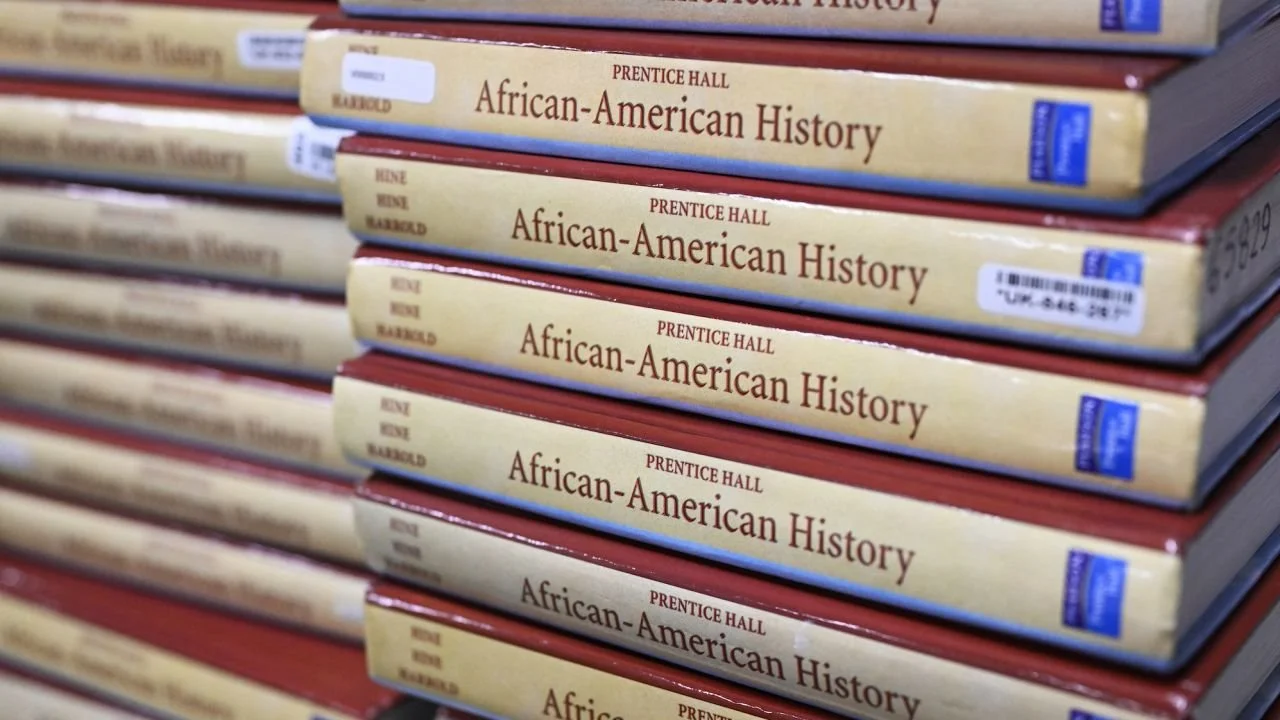

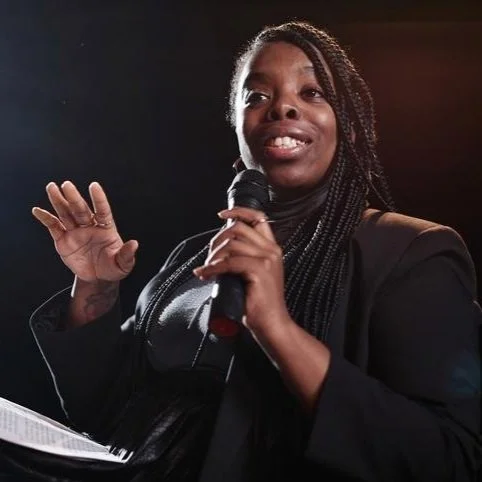

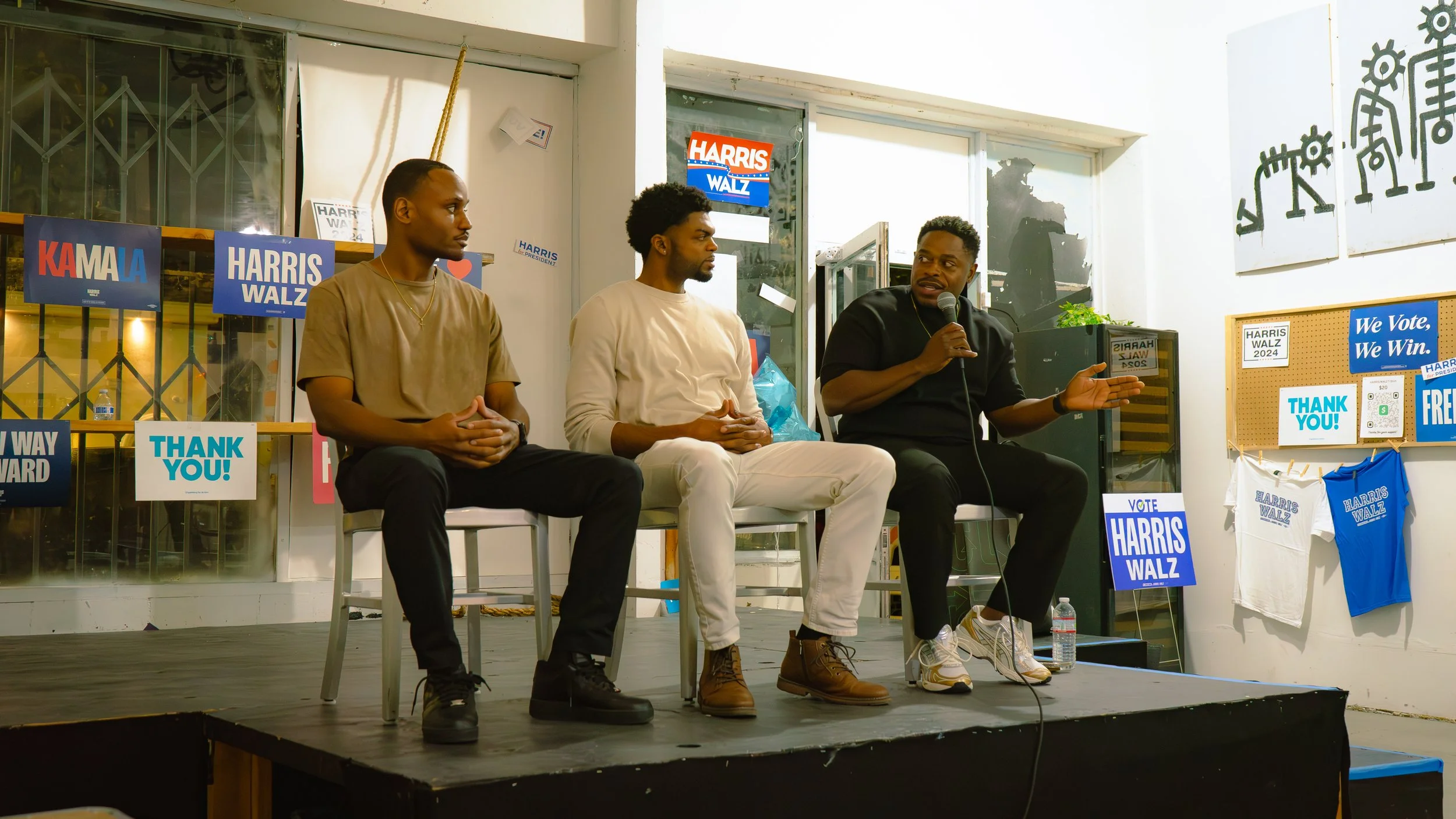
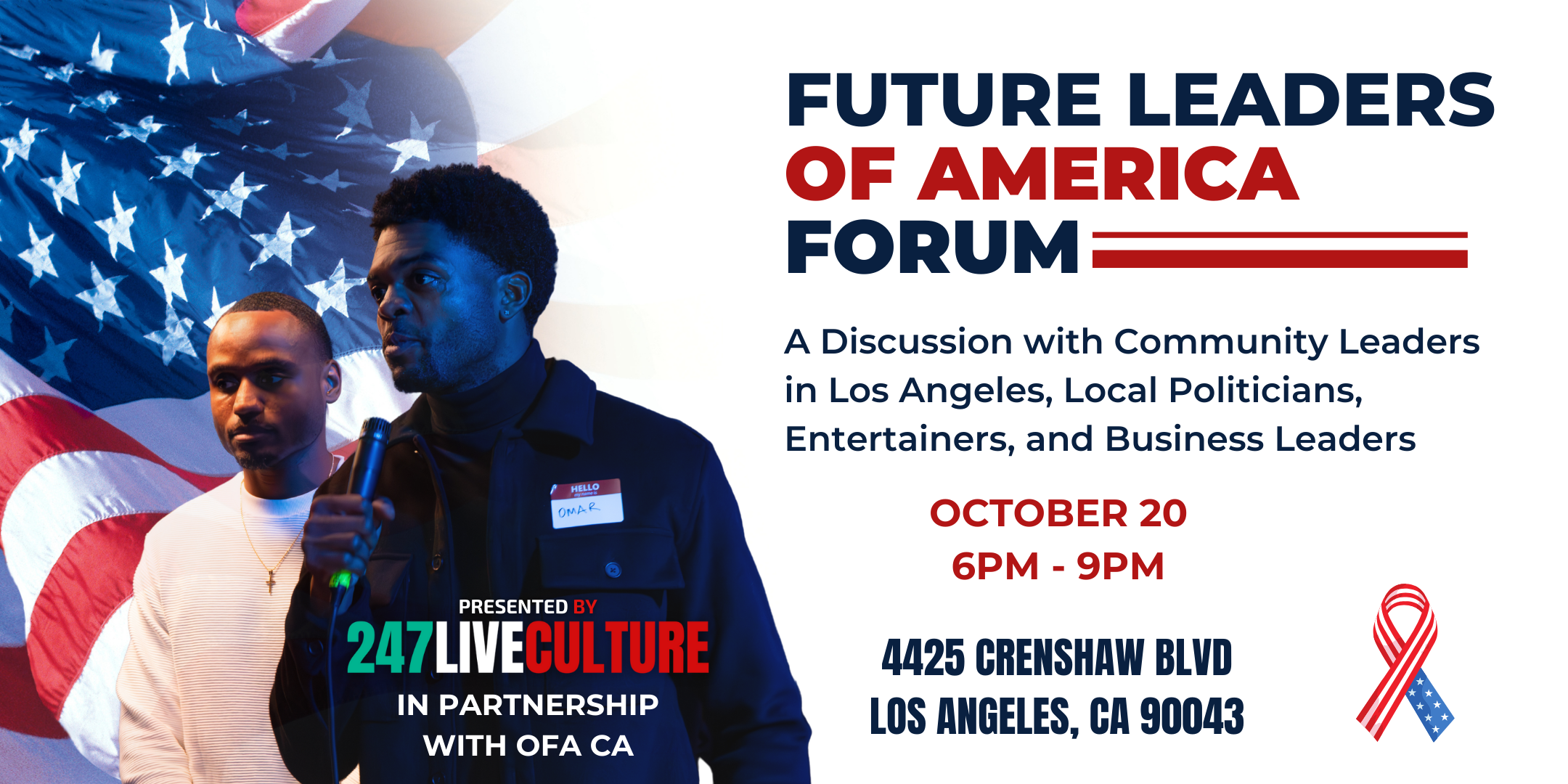
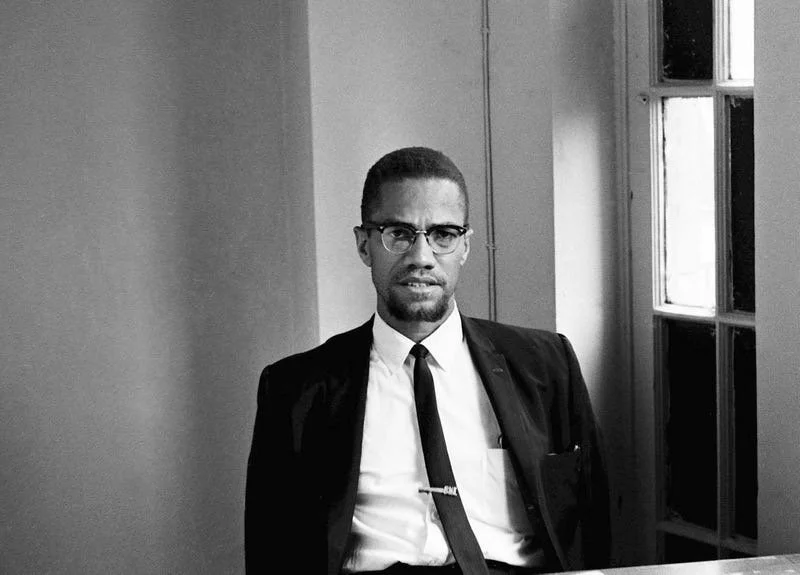




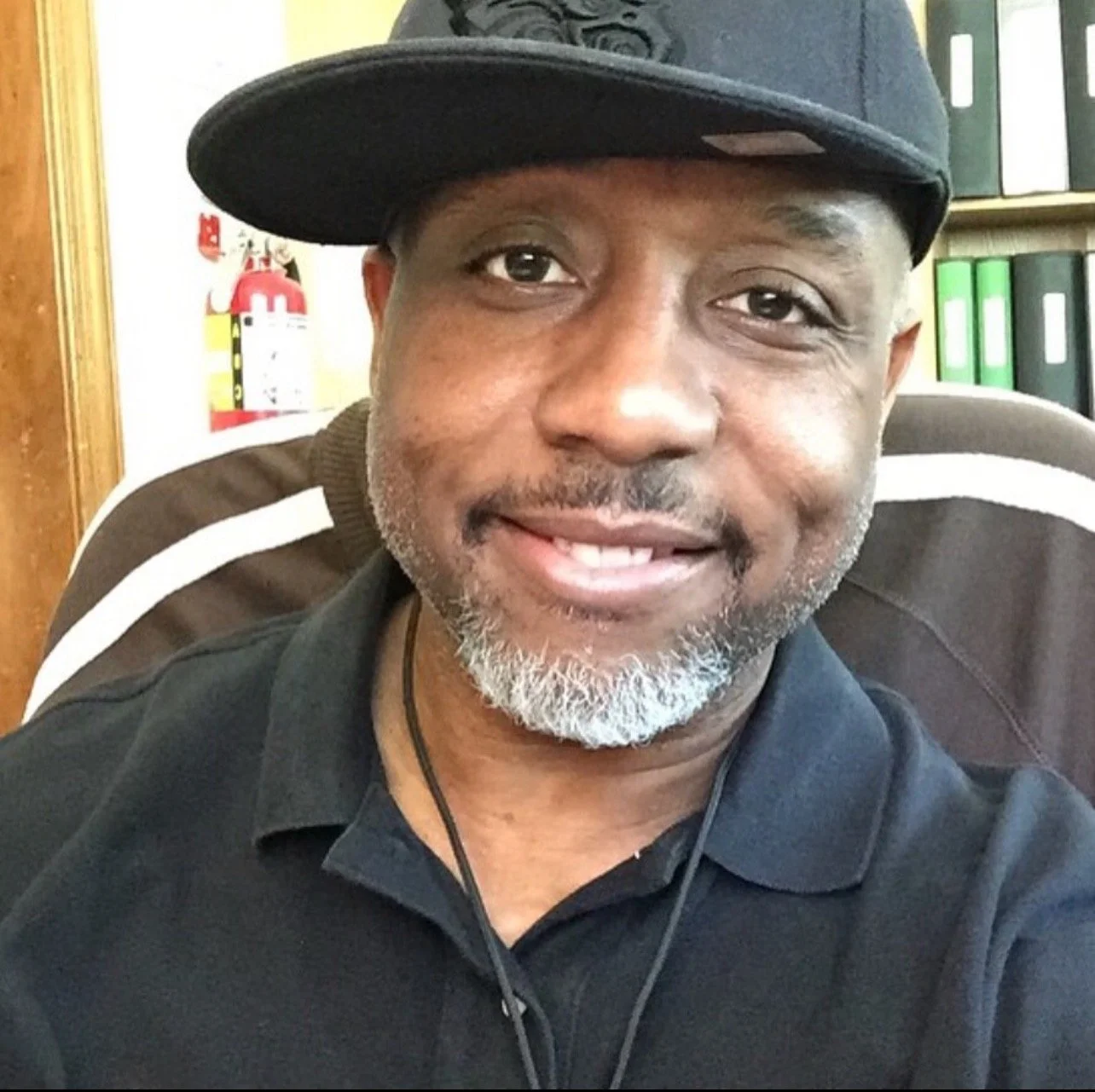






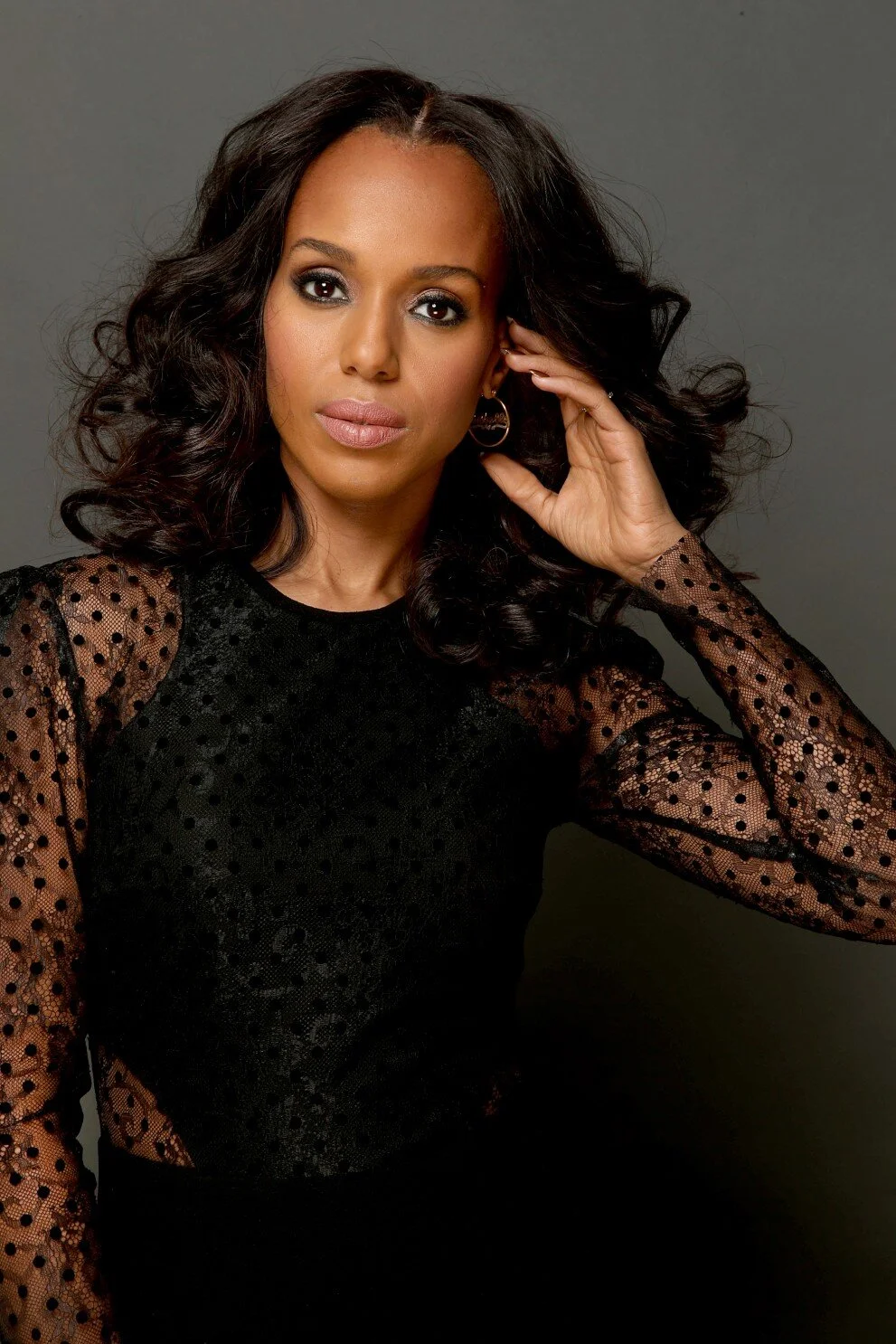
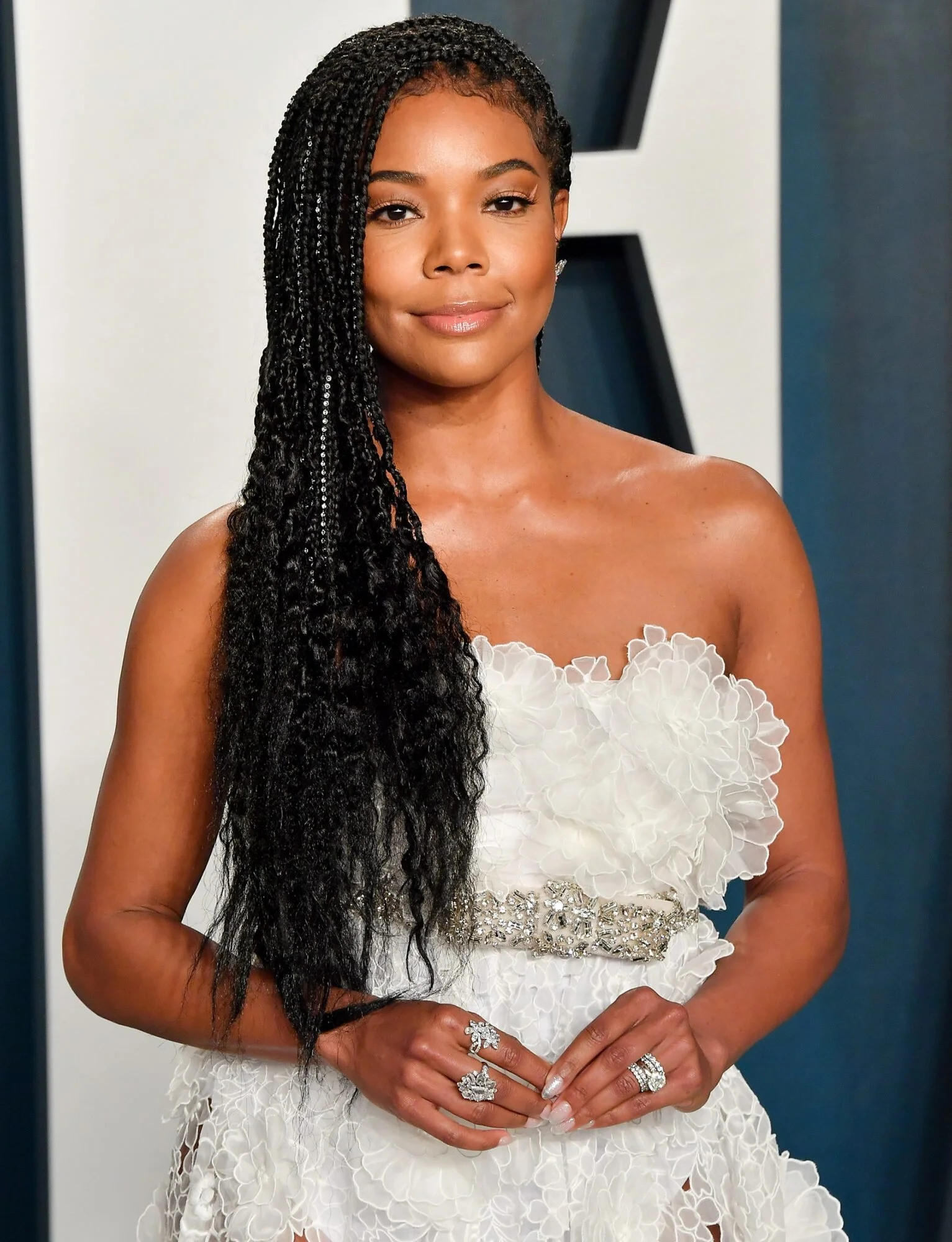







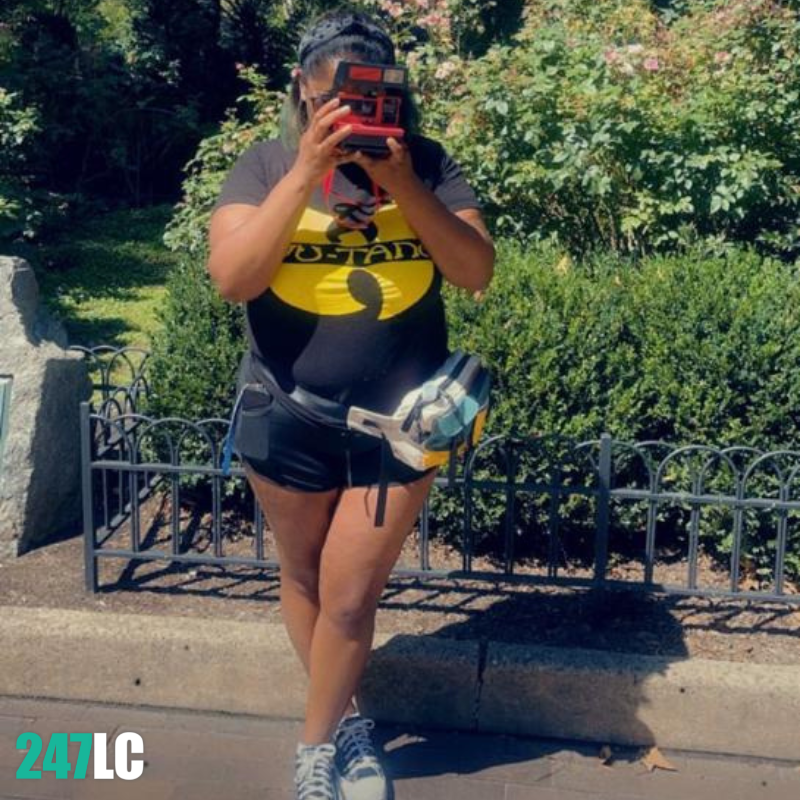
Meet Adonis Armstrong, Co-Founder & President of 247 Live Culture!
Email: Adonis@247LiveCulture.com